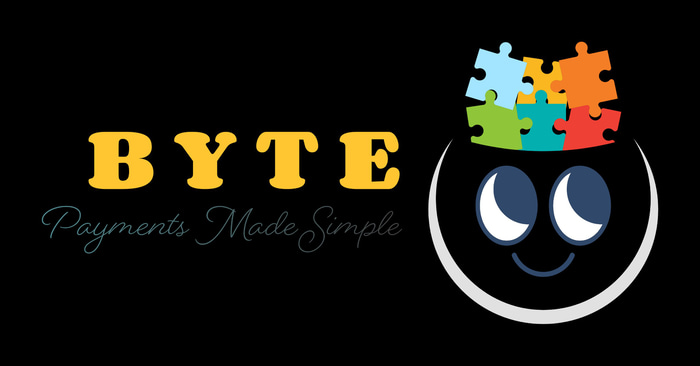Leading Payment Solution Provider in India
Bytewizardy is the leading payment solution provider company in India, offering innovative and secure payment solutions for businesses. Our advanced technology ensures seamless and efficient online payments, with the highest level of security to protect customer information and minimize fraud risk. Trust Bytewizardy for hassle-free payment processing and comprehensive transaction management.
5/8/20243 min read


Open Banking, driven by APIs, represents a fundamental shift in the financial services sector, enhancing connectivity and efficiency. It's not merely an upgrade but a paradigmatic change promising to revolutionize how we interact with banks, businesses, and financial services. APIs serve as the linchpin of this transformation, facilitating secure and seamless data exchange between banks and third-party providers (TPPs).
At its core, Open Banking aims to make banking more accessible and customer-centric by enabling banks to share customer data with TPPs with explicit customer consent. This initiative, catalyzed by regulatory mandates like PSD2 in Europe, promotes competition and innovation by fostering a more level playing field among financial institutions and fintech startups.
The Impact of APIs in Open Banking:
1. Data Sharing: APIs enable banks to securely share customer data, such as account balances and transaction histories, empowering TPPs to offer personalized financial services tailored to individual needs.
2. Payment Initiation: TPPs can initiate payments directly from customers' bank accounts via APIs, streamlining transaction processes and enhancing convenience for users.
3. Service Integration: APIs facilitate seamless integration of banking services with various platforms like accounting software, e-commerce sites, and financial management apps, simplifying financial management for consumers.
Key Benefits of Open Banking and APIs:
1. Enhanced Customer Experience: Consolidating financial data from multiple accounts into one platform enables personalized financial insights and advice, improving overall user experience.
2. Increased Competition: Open data fosters competition among financial service providers, driving innovation and often resulting in better services and reduced costs for consumers.
3. Promotion of Innovation: APIs empower developers to create new financial products and services, stimulating a culture of innovation within the industry.
4. Operational Efficiency: Automating data sharing and payment processes through APIs reduces manual errors and operational costs, enhancing efficiency across financial institutions.
5. Financial Inclusion: Open Banking facilitates access to financial services for underserved populations through alternative platforms and innovative solutions.
Challenges in Adopting Open Banking:
1. Security and Privacy: Safeguarding sensitive financial data requires robust security measures, including encryption and authentication protocols, to mitigate risks associated with data breaches.
2. Regulatory Compliance: Compliance with diverse regulatory frameworks like PSD2 and GDPR poses challenges, necessitating adherence to regional standards and guidelines.
3. Technical Complexity: Integrating APIs with existing banking systems demands significant investments in technology and expertise, presenting technical challenges for seamless interoperability.
4. Consumer Trust: Building and maintaining consumer trust is critical, ensuring transparency in data usage and control over who accesses personal financial information.
5. Standardization: Lack of standardized API formats complicates interoperability between different systems, underscoring the need for universal standards to streamline integration efforts.
Real-World Applications of Open Banking:
1. Plaid: Facilitates seamless connectivity between consumers' bank accounts and financial apps like Venmo and Coinbase, enabling frictionless financial transactions and data sharing.
2. BBVA: Offers a range of APIs through its marketplace for third-party developers, enhancing service offerings such as account aggregation and payment initiation.
3. Revolut: Utilizes APIs to provide a comprehensive suite of financial services, including currency exchange and cryptocurrency trading, integrated across various financial platforms.
Future Trends in Open Banking:
1. Global Expansion: Beyond Europe, regions like North America and Asia are adopting Open Banking frameworks, fostering a global ecosystem of interconnected financial services.
2. AI and Machine Learning: Integration of AI with Open Banking APIs enables personalized financial services, predictive analytics, and enhanced fraud detection capabilities.
3. Blockchain Technology: Enhances security and transparency in financial transactions, addressing trust and security concerns associated with Open Banking initiatives.
4. Diverse Ecosystem: Expect participation from non-traditional players such as tech giants and retailers entering the financial services market through Open Banking innovations.
5. Collaborative Efforts: Success in Open Banking hinges on collaborative efforts among banks, fintech firms, regulators, and stakeholders to navigate challenges and drive continuous innovation.
In conclusion, Open Banking powered by APIs represents a transformative shift towards a more inclusive, efficient, and competitive financial ecosystem. While challenges persist, the potential benefits for consumers and businesses are substantial, paving the way for a future where financial services are more accessible, innovative, and interconnected than ever before.
SECURE
Leading payment solution provider company in India.
CONTACT
reach us
ST-055, CLOUD -9 , SECTOR 1 Vaishali, NEAR MAX HOSPITAL, Ghaziabad, Uttar Pradesh,201010
© 2024 BYTEWIZARDY IT SOLUTIONS PRIVATE LIMITED . All rights reserved.
info@bytewizardy.in
